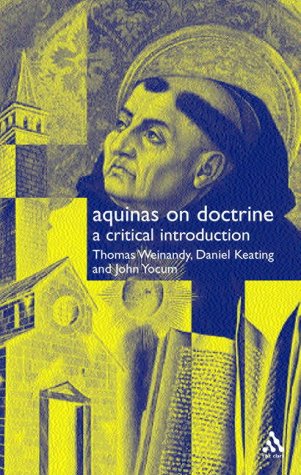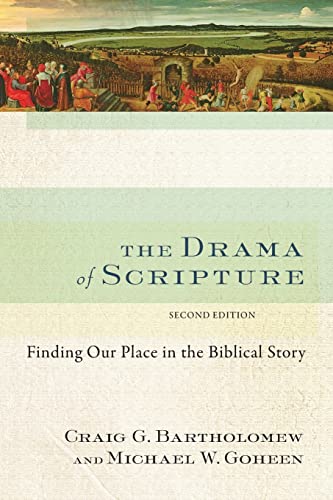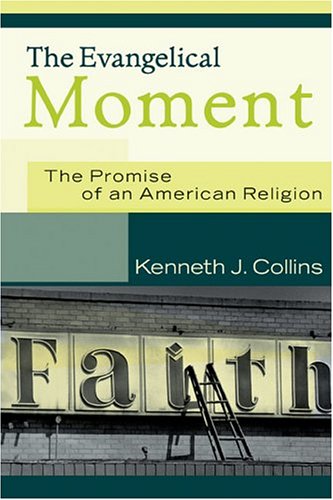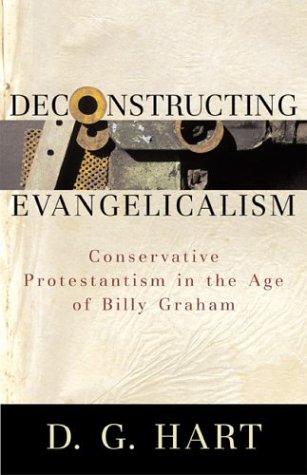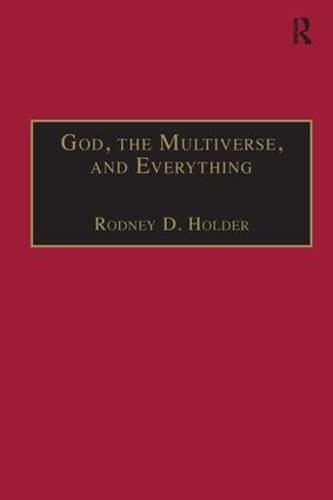Volume 31 - Issue 2
Putting Suspenders on the World: Radical Orthodoxy as a Post-Secular Theological Proposal or What Can Evangelicals Learn From Postmodern Christian Platonists?
By R. Michael AllenIntroduction: the cast, the canvas, the call
No theological movement in recent memory has simultaneously occasioned such high praise and vehement opposition as has the movement self-termed Radical Orthodoxy.1 A recent phenomena spanning the Atlantic (moving from French philosophy and classical Christian resources through Britain and recently arriving with a bang in America), RO constitutes the most daring effort in modern theology to retell the story of theology and recast the role of theology. This bold ethos was, of course, set by the magisterial book, Theology and Social Theory,2 in which John Milbank hoisted the canvas upon which later RO thinkers would paint.
Milbank’s project sketched the history of Christian social thought from the classical era to the present day. However, the broader acceptance of this sketch has been impeded by its communication in opaque language, the immense breadth of its historical judgements which continue to be questioned at critical points, and the particular nature of its highly-debated theological claims. Many substantive theologians have entered the foray as adherents of some form of RO (John Milbank, Graham Ward, Catherine Pickstock, William Cavanaugh, Frederick Bauerschmidt, Gerard Loughlin, etc.); however, it has not yet moved beyond high-brow academic discussion.3 As of yet, evangelical interaction with RO remains sparse, undoubtedly owing to a general discomfort with its categories and context. Seeking to fill such a void, an introductory sketch of the major trends of RO, particularly its theological narration of the world, will be offered here. Possibilities for future evangelical conversation with RO will also be suggested.4
More mediating, less accommodating: a theological imperative
Radical Orthodoxy has claimed to remove a ‘false sense of humility’ from modern theology and to return theology to its rightful place as the ‘queen of the sciences’ (TST, 1–6). RO acknowledges that part and parcel of a robust doctrine of creation (and incarnation) is a commitment to theological engagement with the world as is, eschewing the Manichean tendencies of the ‘Neo-Orthodox’.5 Moving beyond both correlationism and biblicistic dogmatism, RO attempts to situate theologically all human discourse by theologically situating creation itself. In so doing, RO authors attempt to engage all aspects of human life theologically.6 A motto of RO has always been to be ‘more mediating, but less accommodating’ regarding the distinctly Christian nature of all intellectual work.7
Milbank’s magisterial critique of the secular in TST stands underneath all later RO work. Central to this claim is the historical judgement that the secular emerged from Duns Scotus’ placement of being above and beyond God, such that statements might be made univocally of God and humanity (TST, 302–306). In doing this, Scotus segmented the world and acknowledged the existence of zones that were independent of God’s creative sustenance.8 Such a historical critique traces the rise of liberalism and secularity in ways reminiscent of (among others) Stanley Hauerwas, Rowan Williams, Nicholas Lash, and Alasdair Maclntyre. Books in the RO series include engagement with various academic disciplines such as economics (Stephen Long), government (Daniel Bell and Graham Ward), hermeneutics (James K. A. Smith), epistemology (Catherine Pickstock and John Milbank). Each of these engagements requires a denial of the secular void and a reaffirmation of a distinctly Christian ontology. The RO project, therefore, implies a re-articulation of some type of Christian Platonism through its use of the doctrines of participation, incarnation, and eucharist.
Radical Orthodoxy was developed in the environment of Cambridge University in the late 1990s and was first expressed publicly in a self-titled collection of essays. Whether or not there is a true unity amongst those who make up RO is debatable. This is further complicated by a substantive group of individuals who have not written in the RO series but are cited by the authors as being, generally, of like mind. In this list are names such as David Burrell, Gillian Rose, David Ford, Michael Buckley, and Donald MacKinnon (as well as the above-mentioned Hauerwas, Williams, and Lash). RO is best viewed as a particular intensification of thecall of all these theologians to engender a distinctly Christian engagement with the world, focused around truly theological ways of being. RO takes its particular place within this broader persuasion by articulating a distinct invocation of Plato, Augustine, Anselm, and Aquinas.
Participation and Christian Platonism: graced being
Authors of RO have constantly noted the centrality of the doctrine of participation, owing to the centrality of the primary theological problem: that of relating God and world (CG: 8). In fact, ‘the central theological framework of RO is “participation” as developed by Plato and reworked by Christianity, because any alternative configuration perforce reserves a territory independent of God’ (RONT, 3). As any engagement with culture requires a theological ontology, RO has turned to the Christian Platonic tradition (particularly as exemplified in Augustine) to provide an account of the divine gift of being. To avoid nihilistic accounts of the world, RO articulates an ontology that is based upon participation as a divine gift. Being is never arrived or already accomplished. Instead, the gift of being continually overflows from the superabundant being of God.
The gift character of being (always being given, rather than already gifted; Trinitarian, rather than deistic) safeguards RO engagement with cultural studies from lapsing into atomism. Particular accounts of temporal states of affairs hang together (CG: 75). The Augustinian tendency to narrate political history, beginning with the individual, is countered by RO with an acknowledgment of semiosis as tied to the eucharist. All cultural symbols (be they advertisements or despairing newscasts) are governed by the symbolic force of the identification of bread and wine with the body of Christ (CG: 6). In fact, the doctrine of transubstantiation is ‘the condition of possibility for all meaning’ (AW: 261). Empirical or inductive accounts of reality cannot lay claim to normative status when Christ has exemplified an ecclesial pattern of participatory naming. In short, what may appear quite crude and dirty can, in fact, become divine.
In attempting to articulate a participatory ontology, RO authors have sought to move beyond any dichotomy between faith and reason. Milbank argues that faith is simply the intensification of reason perceived by divine illumination.9 Aquinas’ doctrine of the beatific vision becomes the paradigm for epistemology, literally embodying a fully-realized divine illumination of divine gift.10 Knowledge, therefore, becomes eschatologically oriented and graciously mediated. Neither anxious pursuit of epistemic closure nor nihilistic defeatism can remain in such a theological account of participatory giving. In this vein, the RO account of Aquinas continues to be the most disputed point of their re-narration of intellectual thought.11 In fact, Nicholas Lash of Cambridge has claimed that ‘Milbank has Aquinas wrong both on (the doctrine of) analogy and on the relations between theology and metaphysics’.12 Whereas Milbank and Pickstock are correct to note that grace permeates both philosophical and theological study, their excessive polemic13tends to completely overwhelm the very place of graced philosophical work and disallow any mediation of philosophical activity qua philosophy.14
Uses of Postmodernity: radical?
At a time when many shirk from association with the label ‘postmodern’, John Milbank has blatantly styled his project one of ‘postmodern, critical Augustinianism’.15 Postmodernity represents a helpful moment in that the distinctly cultured nature of secular rationality has been uncovered. However, in place of modern accounts of rationality, postmodern thinkers (such as Derrida) cannot get beyond nihilism without providing a proper ontology. Catherine Pickstock engages in lengthy debate with Derrida regarding proper readings of Plato and the notion of (authorial or oral) presence, attempting to move beyond the dichotomy of absence/presence through a particular account of the eucharistic liturgy (AW: 3–46).
While RO is certainly not in bed with postmodernity qua postmodernity, modernity fares equally badly in the narrative told by RO. RO discussion of participation in the divine does not come at the expense of the particular mediation of human activity within language and history. Divinely-based ontology cannot come at the expense of linguistic mediation and pneumatically-mediated creativity. There, simply put, is no immediate knowledge apart from prejudices and the powers of persuasion (CG: 17). Modernity must be redirected away from nihilism, by the embrace of the particularity of the work of the Triune God. Therefore, discussion of Christology and pneumatology is tied explicitly to the complex cultural spaces of communal life.16
Participation, of course, guards such an acknowledgment of particularity from lapsing into sheer relativism. However, particularity and situatedness must not be viewed as depriving God of creative power. RO seeks to counter postmodern nihilism with a ‘theological textuality’ which respects situatedness(difference) amidst affirmations of expansive divine action (CG: 8; AW: 262). Divine action extends beyond mere causal force; the divine actually bestows being.17 The non-competitive relationship between God and world, grounded in the giving nature of God, allows human action (in its particular distinctives) to be simultaneously divine action. Interdisciplinary description of divine bestowal of being to the world safeguards intellectual confession from becoming mere dogmatic circularity (CG: 22); in short, theological description is necessary everywhere. James Smith helpfully summarizes the matter, ‘the issue is not modernity or postmodernity per se, but rather the politics of secularity rooted in an ontology of immanence, which is common to both’.18
Doctrine: whose orthodoxy? which church?
Trinity, christology, and eucharist: each of these doctrines is given important attention by RO. Whereas most scholarly interaction with RO has gravitated around historical judgements rendered, relatively little effort has gone into a theological critique of RO. Theological discussion is complicated given the ecclesial location of RO: of the original contributors to RONT are five Roman Catholics and seven High-Church Anglicans. The three editors are all Anglicans, yet they espouse Catholic doctrine which has been renounced resolutely by the Anglican church (i.e. transubstantiation). To whom is this movement accountable? Can RO articulate a concrete ecclesial home or must it claim to speak for the church which does not yet exist? Anyone who wishes to come to terms with the Catholic vision without falling into dogmatism faces this question, as the writings of Stanley Hauerwas (an ally of Milbank and RO) demonstrate.19
Regarding the possibility of avoiding sheer relativism, RO tends to accentuate the robust nature of a Christian doctrine of creation. Whereas secular theory has postulated backwards from the agonistic and dire results of the twentieth-century, Christians are theologically committed to positing ontological peace as original (TST: 430–32). Without lapsing into Hegelian immanentism, theological hope resuscitates and, in fact, surpasses creation’s original peace.20 Such a peace amongst difference is, of course, demonstrated most fully in the very life of the Triune God, whereby persons commune in utter harmony (TST: 429–30). Once the triune possibility is demonstrated, its absorption of humanity into this peaceful differentiation occurs as humans participate in the life of the Son of God, who unites the divine and human. Doctrines of the Trinity and Christology, mediated via a robust eucharistic theology, provide a truly theological ontology for RO.
It is fitting that a section devoted to the particular doctrinal commitments of RO be kept short, for RO is committed to discussing doctrine through other modes of discourse (economics, literature, sexuality, etc.). The theological commitments of RO are best seen in the discussion of other disciplines, demonstrating that its commitment to mediation of theology via other topics is inherent (and not merely illustrative) to its theological commitments.
Augustinian Politics: parodies and plenitude
Radical Orthodoxy has been, from TST to its more recent publications, a movement of theological politics. To note the arguments of RO against secular rationality, everything is political. A substantive part of the RO project, then, is to re-narrate things as they are politically. By calling a spade a spade in identifying the non-Christian politics that are implicit in so much contemporary culture, RO notes the particularly presupposed nature of all theory. Capitalism has fallen under the critical eye of RO, as it rests upon notions of lack and scarcity. Quite to the contrary, Christian Platonism glories in the overflowing bounty that is created by the divine energies. Given the participatory metaphysics underlying the RO project, God is not thought of as a competitor with creation for being. On the contrary God can give freely, creatively giving being without suffering any loss. Divine plenitude fosters an expectation of material bounty, never to be identified with class struggle or technological progress. The optimism of RO, amidst the ruins of communism and unrealized excesses of liberalism and capitalism, is owing to its eschatological expectation of divine giving.
Graham Ward and William Cavanaugh have given extensive treatment to the theological nature of city and state, respectively.21 RO is committed to upholding the transcendental difference between God and world (in this case, earthly politics) without losing the ability to critique the nitty-gritty reality of actual history (CG: 8). The modern state must be deconstructed as an unfulfilled promise, necessitating adjusted expectations.22 The deconstructive task functions to demonstrate the complex nature of space, eliding all attempts to provide the good via method or management (WMS: 271). Only complex accounts of space maintain the integrity of the particular without merely collapsing it into one more causal link in the great chain of eschatology (WMS: 276).
All claims of the state or market which encroach upon the ever-bountiful giving that is present in the church (and the state and market are ever-encroaching in this way!) merely parody the diffusive presence of Christ amidst this particular people (RONT: 182). Globalization, rather than delivering freedom from the tyrannous rule of the state, escalates and broadens the power of the state to obliterate the particular and bind the unity possible to what is merely virtual—cyberspace, rather than real communion around shared purposes (RONT: 194). Deconstructing the state entails deconstruction of false unity pledged by false gods, thereby allowing theological depiction of the diffusive and intricate nature of God’s creative work.
Evangelical questions for RO: a conclusion in search of co-operation
How might evangelical Christians interact with such tendencies and concerns? To note suggestions, certain questions might be put to RO by evangelicals.
Scripture
Thus far, no RO author has entered into any sustained interaction with Holy Scripture. Certainly the emphasis upon historical re-narration and philosophical theology can be appreciated. Evangelicals, however, will want to know if sustained use of Scripture, so essential to the evangelical impulse, can and will be brought into the RO project. While recent work has demonstrated that Augustine and Aquinas managed to avoid simply being secularized by their interactions with Plato and Aristotle owing to their continual subservience of all metaphysical discussion to the Scriptural narrative itself.23 RO has not yet demonstrated such a submission of philosophical inquiry to the service of the explicit account of the narrative of salvation.24
Protestant
While most of the adherents of RO are, in fact, Protestants, the theological face of RO is, as noted above, resolutely Catholic.25 Are we simply witnessing a new Oxford Movement? Can RO find any positive place for the 16th century Protestant Reformations? More pointedly, it should be noted that RO has yet to engage any distinctively evangelical thinkers. While philosophical theology has never been a central concern of evangelical interests (which tend toward the more pragmatic), RO still has to acknowledge any evangelical Protestant voices in the mediating discourses to which it is committed.26 Will evangelicals find themselves accounted for by RO? Can our story explicitly fit into the story told by RO?
Sacramental
RO prioritizes the doctrine of transubstantiation as requisite for meaning. Evangelicals do not uphold this doctrine. Something of an impasse can only be averted, it seems, if RO renegotiates sacramental options by considering other notions of presence/absence in between the Tridentine and Zwinglian extremes. Graham Ward offers a very brief excursion into Calvin’s doctrine of ‘real presence’, albeit (perhaps overly) critical (CG: 161–67), but no mention seems to have arisen of Lutheran views. One also wonders if looser notions of union with the divine might uphold the particular metaphysical needs of RO—is ‘participation’ the only or best way to describe the human union with Christ? What of notions like ‘identification’ or ‘fellowship?’
Sin and Atonement
Is RO capable of offering an account of sinfulness and redemption that satisfies evangelical concerns with the deep and pluriform depiction of these opposing realities in the Scriptures? RO tends to describe creation and participation (TST: 397), often to the exclusion of fallenness and regeneration. It is in this realm that James Smith has addressed RO helpfully from a distinctly Dutch Reformed perspective, particularly in contesting the Thomistic and RO notions of ‘common grace’.27 Will the Platonist tendencies of RO override further engagement with other soteriological categories more amenable to those in the Reformation traditions?
Educational Curriculum
With the goal of reinstating theology as ‘queen of the sciences’, RO seems to thoroughly reconfigure the disciplinary divisions of education. Apart from prior discussions of the possibility of philosophy existing in a post-secular period, RO still stuns one by suggesting that everyone must be a theologian. Whereas few would actually protest that all humans do, in fact, hold beliefs about divine things (and can therefore, at one level, be termed ‘theologians’), it is entirely another thing to define educators as, one and all, theologians. Can this be maintained at a professional level, with each professor matching specialized competency with that of Christian theology? Would Christian theology cease to be a second-order discipline focused in one department of the academic institution? Can it only be mediated via other conversations (i.e. economic, political science, gender studies, etc.) as exemplified in the writings of RO?
Conclusion
In short, RO reshapes the task of engagement with the world. The lordship of Christ must be extended over all creation, thereby necessitating a distinctively theological manner of engagement with all aspects of life. Whereas the particular metaphysics of RO and its way of telling the story of philosophy may be debatable, the broad persuasion of RO must summon each of us to take all things captive to Christ. For evangelicals who too often have allowed secular disciplines to segment our lives in unhealthy ways, RO presents a clarion call to truly (and distinctly) Christian participation in the world. At the very least, modern theology must shirk the false humility which RO has so thoroughly documented in its history of the withdrawal of modern theology from any place of prophetic power.
Bibliography
Radical Orthodoxy Series (Routledge)
Daniel M. Bell, Jr, Liberation Theology After the End of History: the Refusal to Cease Suffering (London: Routledge, 2001)
Conor Cunningham, Geneology of Nihilism (London: Routledge, 2002)
Michael Hanby, Augustine and Modernity (London: Routledge, 2003)
- Stephen Long, Divine Economy: Theology and the Market (London: Routledge, 2000)
John Milbank, Catherine Pickstock, and Graham Ward (eds), Radical Orthodoxy: a New Theology (London: Routledge, 1999)
John Milbank and Catherine Pickstock, Truth in Aquinas (London: Routledge, 2001)
John Milbank, Being Reconciled: Ontology and Pardon (London: Routledge, 2003)
Robert C. Miner, Truth in the Making: Knowledge and Creation in Modern Philosophy (London: Routledge, 2003)
Tracy Rowland, Culture and the Thomist Tradition: After Vatican II (London: Routledge, 2003)
James K. A. Smith, Speech and Theology: Language and Logic of Incarnation (London: Routledge, 2002)
Graham Ward, Cities of God (London: Routledge, 2000)
Other Engagements with RO (from within or without)
Philip Blond (ed.), Post-Secular Philosophy: Between Philosophy and Theology (London: Routledge, 1998)
David B. Burrell, ‘An Introduction to Theology and Social Theory’, Modern Theology 8 (1992): 319–29
William T. Cavanaugh, Torture and Eucharist (Oxford: Blackwell, 1997)
William T. Cavanaugh, Theopolitical Imagination: Discovering the Liturgy as a Political Act in an Age of Global Consumerism (Edinburgh: T & T Clark, 2002)
William T. Cavanaugh, ‘Killing for the Telephone Company: Why the Nation-State is Not the Keeper of the Common Good’, Modern Theology 20 (2004): 243–74
Creston Davis, John Milbank, and Slavoj Zizek (eds), Theology and the Political: the New Debate, Sic V(Durham, NC: Duke University Press, 2005)
David F. Ford, ‘Radical Orthodoxy and the Future of British Theology’, Scottish Journal of Theology 54(2001): 385–404
David Bentley Hart, ‘Review Essay: Catherine Pickstock, After Writing’, Pro Ecclesia 9, no. 3 (2000): 367–72
Laurence Paul Hemming (ed.), Radical Orthodoxy: a Catholic Enquiry? (Burlington, VT: Ashgate, 2000)
Fergus Kerr, ‘Reviews: Word Made Strange; The Liturgical Consummation of Philosophy; Post-Secular Philosophy’, New Blackfriars 79 (1998): 352–58
Nicholas Lash, ‘Where Does Holy Teaching Leave Philosophy? Questions on Milbank’s Aquinas’, Modern Theology 15 (1999): 433–44
- Stephen Long, ‘Radical Orthodoxy’, in Cambridge Companion to Postmodern Theology, ed. Kevin J. Vanhoozer (Cambridge: Cambridge University Press, 2003)
John Milbank, ‘Postmodern, Critical Augustinianism: a Short Summa in Forty-Two Responses to Unasked Questions’, in The Postmodern God: a Theological Reader, ed. Graham Ward (Oxford: Blackwell, 1997): 265–78
John Milbank, The Suspended Middle: Henri de Lubac and the Controversy Concerning the Supernatural(Grand Rapids, MI: Eerdmans, forthcoming)
John Milbank, Theology and Social Theory: Beyond Secular Reason (Oxford: Blackwell, 1990)
John Milbank, The Word Made Strange: Theology, Language, Culture (Oxford: Blackwell, 1997)
Catherine Pickstock, After Writing: On the Liturgical Consummation of Philosophy (Oxford: Blackwell, 1998)
Catherine Pickstock, ‘Reply to David Ford and Guy Collins’, Scottish Journal of Theology 54 (2001): 405–422
- R. Reno, ‘The Radical Orthodoxy Project’, First Things 100 (2000): 37–44
James K. A. Smith and James H. Olthuis (eds), Creation, Covenant, and Participation: Radical Orthodoxy and the Reformed Tradition (Grand Rapids: Baker Academic, forthcoming)
Graham Ward, Christ and Culture (Oxford: Blackwell, forthcoming)
1 Hereafter the movement, persuasion, or group known as Radical Orthodoxy will be abbreviated RO.
2 John Milbank, Theology and Social Theory: Beyond Secular Reason (Oxford: Blackwell, 1990). Hereafter, this will be abbreviated TST within the text.
3 One instance of more accessible interactions with RO (albeit overly negative) is that of R.R. Reno, ‘The Radical Orthodoxy Project’, First Things 100 (2000), 37–44.
4 Thus far, interaction between RO and evangelical theology remains limited to the efforts of Dutch Calvinists. See especially James K. A. Smith, Introducing Radical Orthodoxy: Mapping a Post-secular Theology (Grand Rapids: Baker Academic, 2004); James K. A. Smith and James H. Olthuis (eds), Creation, Covenant, and Participation: Radical Orthodoxy and the Reformed Tradition (Grand Rapids: Baker Academic, forthcoming). Smith’s introductory volume is incredibly helpful; however, his interaction (for better or for worse) is Dutch Calvinist interaction with RO and might need supplementation from other evangelical traditions. Thus far, the best interaction with RO has come from Catholic theologians; see Laurence Paul Hemming (ed.), Radical Orthodoxy? A Catholic Enquiry (Burlington, VT: Ashgate, 2000).
5 Graham Ward, Cities of God (London: Routledge, 2000), 69. Hereafter, this will be abbreviated CG within the text.
6 Note that Milbank has expressed discontent with the Kuyperian notion of ‘distinct spheres’ of sovereignty, noting the shifting, historical nature of aspects of creation. See Smith, Introducing Radical Orthodoxy, 13.
7 John Milbank, Catherine Pickstock, and Graham Ward (eds), Radical Orthodoxy: a New Theology(London: Routledge, 1999), 2. Hereafter, this will be abbreviated RONT within the text.
8 The most helpful discussion of Scotus occurs in John Milbank, Being Reconciled: Ontology and Pardon(London: Routledge, 2003), 74–78. See also Catherine Pickstock, After Writing: On the Liturgical Consummation of Philosophy (Oxford: Blackwell, 1998), 122–25 (hereafter, this will be abbreviated as AW within the text). For more complex accounts of Scotus and his alleged doctrine of the univocity of being, see Fergus Kerr, ‘Why Medievalists Should Talk to Theologians’, New Blackfriars 80, no. 941 (1999), 369–75; David Bentley Hart, ‘Review Essay: Catherine Pickstock, After Writing’, Pro Ecclesia 9, no. 3 (2000), 367–72.
9 John Milbank and Catherine Pickstock, Truth in Aquinas (London: Routledge, 2000), ch. 2
10 Ibid., 38
11 Even an original contributor to RONT, Laurence Paul Hemming, finds the RO Aquinas to be lacking. See his ‘Quod Impossibile Est! Aquinas and Radical Orthodoxy’, in Radical Orthodoxy? A Catholic Enquiry, 76–93.
12 Nicholas Lash, ‘Where Does Holy Teaching Leave Philosophy? Questions on Milbank’s Aquinas’, Modern Theology 15 (1999), 433–44
13 Note their polemical titles, such as, ‘Only Theology Overcomes Metaphysics’, in Word Made Strange, or On the Liturgical Consummation of Philosophy, the subtitle of Pickstock’s After Writing.
14 See Smith, Introducing Radical Orthodoxy, 161–62; Lash, ‘Where Does Holy Teaching Leave Philosophy?’, 438–40. It is quite strange that Smith elsewhere praises RO for its engagement of metaphysics (see Introducing Radical Orthodoxy, pp. 186).
15 John Milbank, ‘Postmodern, Critical Augustinianism: a Short Summa in Forty-Two Responses to Unasked Questions’, in The Postmodern God: a Theological Reader, ed. Graham Ward (Oxford: Blackwell, 1997), 265–78
16 Milbank has offered a two-part project regarding mediation of the Logos and Pneuma in human activity. See The Word Made Strange: Theology, Language, Culture (Oxford: Blackwell, 1997), and Being Reconciled.
17 John Milbank, ‘Only Theology Overcomes Metaphysics’, in Word Made Strange, 44
18 Smith, Introducing Radical Orthodoxy, 140
19 See Hauerwas’ ecclesial and theological agony (if that’s not too sharp a word) in his Unleashing the Scriptures: Freeing the Bible from Captivity to America (Nashville, TN: Abingdon, 1993), 157 fn. 0.
20 Milbank and Pickstock, Truth in Aquinas, 33ff.
21 Ward, Cities of God; William Cavanaugh, ‘The City: Beyond Secular Parodies’, in RONT; idem, Theopolitical Imagination: Discovering the Liturgy as a Political Act in an Age of Global Consumerism(Edinburgh: T & T Clark, 2002).
22 William Cavanaugh, ‘Killing for the Telephone Company: Why the Nation-State is Not the Keeper of the Common Good’, Modern Theology 20 (2004), 267
23 On the use of metaphysical discussion in aid of Scriptural exegesis in Aquinas, see the brilliant work recently published by Matthew Levering, Scripture and Metaphysics: Aquinas and the Renewal of Trinitarian Theology (Oxford: Blackwell, 2004).
24 See the sharp concerns of David Ford: ‘Scripture is so intrinsic to the traditions, practices, and theologians they espouse that without it their claim to be in continuity with these is hopelessly compromised … a theology that does not inhabit the Bible in lively ways is very unlikely to be more than a set of ideas unable to reach beyond a very limited “high culture” milieu’ (‘Radical Orthodoxy and the Future of British Theology’, Scottish Journal of Theology 54 (2001), 397–98).
25 For helpful summary of the ‘reformed Catholicism’ which RO implies, see Pickstock, ‘Reply to David Ford and Guy Collins’, Scottish Journal of Theology 54 (2001), 408. Where does such a ‘reformed Catholicism’ concretely exist? Can RO point to a historical community? Is this idealism?
26 James Smith notes several examples of evangelical philosophical theology that might, at various points, chasten the RO project. One such example is Jonathan Edwards’ work on regeneration and interpretation. See Smith, Introducing Radical Orthodoxy, 164 fn. 66.
27 Ibid., 163–66
R. Michael Allen
is a PhD candidate in systematic theology at Wheaton College (Wheaton, IL). He is researching Christology, particularly the dogmatic coherence and necessity of the Christ’s faith.


